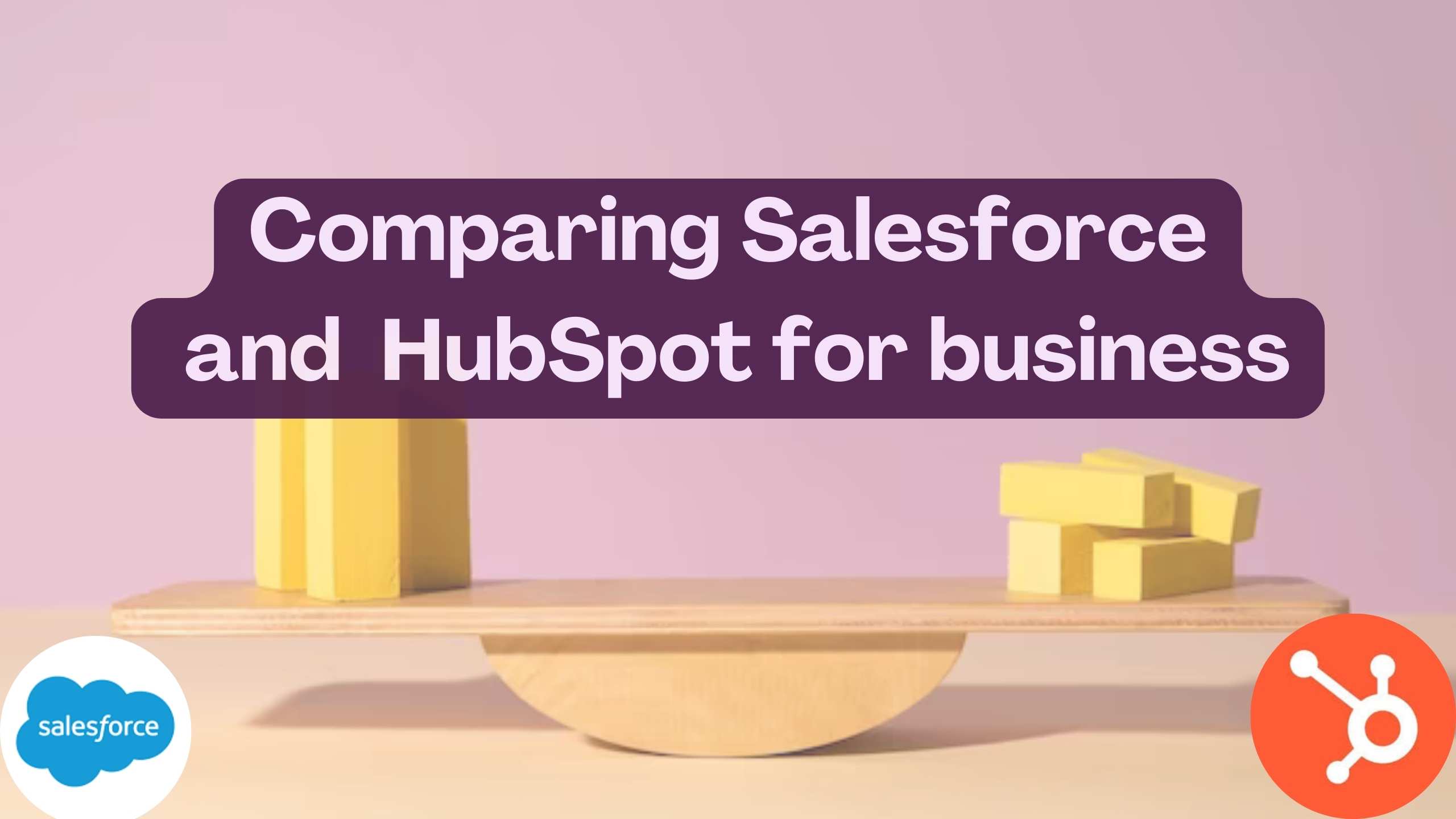Comparing Salesforce and HubSpot for business
- Expense Management Software Credit Cards Investing Business Solutions


Comparing Salesforce and HubSpot for Business
In the ever-evolving landscape of business software solutions, Salesforce and HubSpot stand out as titans in the realm of customer relationship management (CRM) and marketing automation respectively. Choosing between these platforms can be a daunting task for businesses seeking to optimize their operations and drive growth. In this article, we’ll delve into a comprehensive comparison of Salesforce and HubSpot, exploring their features, functionalities, and suitability for different business needs. Additionally, we’ll highlight relevant SaaS products that complement these platforms, offering a holistic approach to business management and growth.
Salesforce: The CRM Powerhouse
Salesforce is synonymous with CRM excellence, boasting a robust suite of tools designed to streamline sales, marketing, and customer service processes. Its extensive feature set includes:
- Lead Management: Salesforce offers robust lead tracking and management capabilities, enabling businesses to efficiently nurture leads through the sales pipeline.
- Customization: With Salesforce’s highly customizable interface, businesses can tailor their CRM workflows to align with specific processes and requirements.
- Integration Ecosystem: Salesforce integrates seamlessly with a vast array of third-party applications, allowing for enhanced functionality and workflow automation.
HubSpot: Revolutionizing Marketing Automation
HubSpot has carved a niche for itself as a leading provider of inbound marketing and sales software. With a user-friendly interface and an array of powerful features, HubSpot empowers businesses to attract, engage, and delight customers. Key features include:
- Content Management: HubSpot’s content management system (CMS) enables businesses to create, optimize, and publish content seamlessly.
- Marketing Automation: From email marketing to social media management, HubSpot offers robust automation tools to streamline marketing campaigns.
- Analytics and Reporting: HubSpot provides comprehensive analytics and reporting dashboards, allowing businesses to track the performance of their marketing efforts in real-time.
Comparing Salesforce and HubSpot: Key Considerations
1. Scalability and Flexibility
- Salesforce offers unparalleled scalability, making it suitable for businesses of all sizes, from startups to enterprise-level organizations.
- HubSpot’s intuitive interface and flexible pricing tiers make it an attractive option for small to mid-sized businesses seeking a user-friendly solution.
2. Integration Capabilities
- Salesforce’s vast ecosystem of integrations allows businesses to connect their CRM with a multitude of third-party applications, facilitating seamless data exchange and workflow automation.
- HubSpot’s native integrations with popular marketing tools and platforms simplify the process of centralizing marketing efforts and data management.
3. Cost and Pricing Structure
- Salesforce’s pricing structure can be complex, with different editions and add-on features contributing to varying costs based on business needs.
- HubSpot offers transparent pricing plans with tiered options, catering to businesses of different sizes and budgets.
Conclusion: Making an Informed Decision
Choosing between Salesforce and HubSpot ultimately depends on your business’s unique requirements, budget, and long-term goals. While Salesforce excels in robust CRM functionalities and enterprise-level scalability, HubSpot shines in user-friendly marketing automation and lead nurturing capabilities. By carefully evaluating your business needs and priorities, you can select the platform that best aligns with your objectives and empowers your team to drive growth and success. Explore Subscribed.FYI Deals and discover exclusive member-only discounts on SaaS products that complement Salesforce and HubSpot. Sign up for free today and leverage these deals to enhance your CRM and marketing automation strategies.








